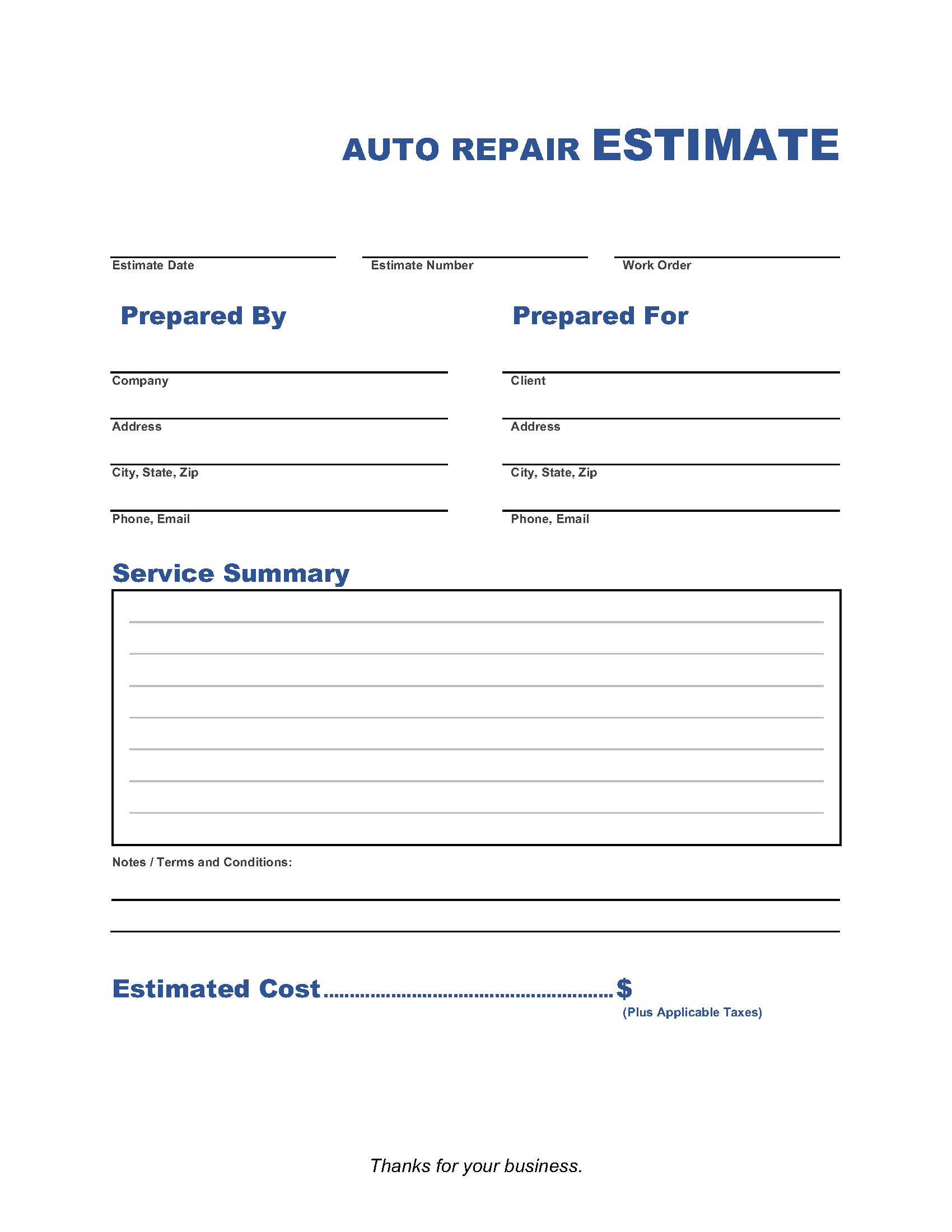Auto Repair Estimate Template
An auto repair estimate is a document that a mechanic gives to a potential customer, which provides a general idea of what a job will cost. Having a ballpark figure of the price helps the car owner to decide whether or not to proceed with the repairs.
Common Auto Repairs & What They Cost
- Brake job: A full brake job involves replacing brake pads and rotors and can cost anywhere from $300 to more than $1,000.
- Tune-up: A tune-up is essentially preventative maintenance on vehicle parts that tend to need replacing, such as spark plugs and the air filter. Depending on the extent of the repair, a tune-up can cost anywhere from $40 to $800.
- Oil change: This involves draining the old oil and replacing it with new oil. A typical oil change will average between $35 and $75.
- Flat tire repairs: The cost of a tire patch is a few dollars, so what you’re paying for is the mechanic’s time. However, if you need to replace a tire, then the cost can range from $50 to $200 or more.
- Tire rotation: A tire rotation, which involves moving the tires from one position to another in order to maintain an even amount of tread on your tires, can cost anywhere from $50 to $120.
- Wheel alignment: Getting wheels aligned ensures the vehicle gets maximum gas mileage and its tires have the longest possible life. Aligning two wheels generally costs $50 to $75, whereas aligning four costs an average of $100 to $170.
- Engine flush: This involves flushing the engine and can cost anywhere from $100 to $150.
- Transmission flush: Flushing the transmission, which requires a special solution, can range from $150 to $400.
Average Hourly Rates
According to ZipRecruiter, the average hourly pay for a mechanic in the United States is $21.03 an hour. The pay range varies, suggesting there are opportunities to increase rates based on location, skill, and experience.
Do Mechanics Have to be Licensed or Certified?
Licensing requirements vary by state. Most mechanics are allowed to work without a license. However, even in the states where mechanics are not required to be licensed, auto body shops and clients are likelier to hire mechanics with industry certifications. Common certifications come from the National Institute for Automotive Service Excellence (ASE); specific manufacturers also offer certification programs that focus on vehicles produced by that manufacturer.
What is Included in an Auto Repair Estimate?
Auto repair estimates are often more complex and technical than other estimates, such as the estimate a graphic designer might issue. This is because there are additional charges to consider. An auto repair estimate should include:
- Mechanic’s contact information
- Customer’s contact information
- Vehicle information (make, model, VIN number)
- Parts required
- Estimated cost of labor
- Misc. charges (e.g. charges for removing hazardous waste)
- Summary of charges
- Payment terms
What is R&R?
The term R&R sometimes appears on auto repair estimates, and it stands for remove and replace. This indicates that a certain vehicle part cannot be fixed, and thus must be replaced by a new part. Often the part has to be ordered from elsewhere.
